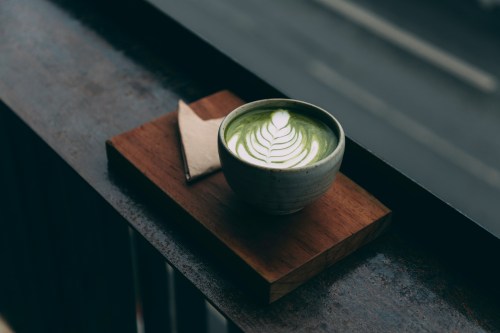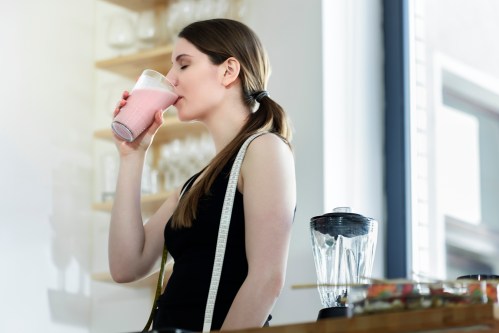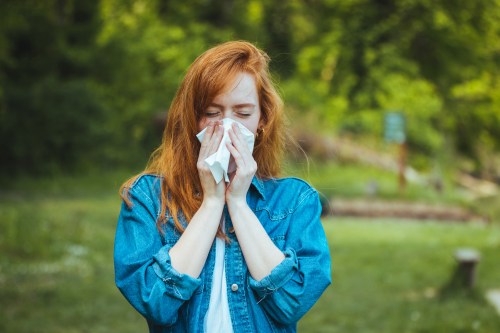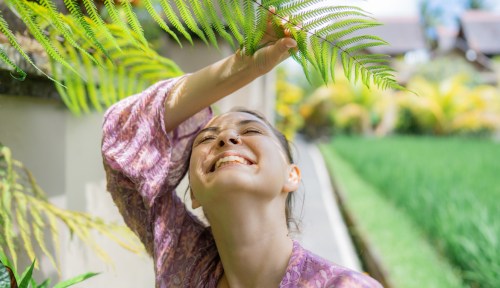It’s long been recognized in the medical community that if you’re a man struggling to have a satisfying sex life, it deserves not only a solution, but one you don’t have to pay for. Viagra has been on the market for over a decade and you’ll be hard up to find an insurance provider that doesn’t cover it. Women’s right to sexual desire, however, has a more complicated history—and has only recently become a mainstream topic of discussion.
Doctors have finally started to recognize the reality and prevalence of Hypoactive Sexual Desire Disorder (HSDD), a medical condition causing low libido that affects one in ten women (though this number is likely underreported). However, advocates are still fighting for HSDD to be treated as seriously as erectile dysfunction. Cindy Eckert, the CEO of Sprout Pharmaceuticals, says the battle to get her company’s HSDD drug Addyi and FDA-approved was a long, hard fight. “There’s the tale of the blue pill and the tale of the pink pill,” she says. “[A drug to treat erectile dysfunction] was seen as such an important medical need that it received a special status and was fast-tracked to the FDA, and was then approved in six months. By contrast, [a drug to treat low libido in women] took six years, despite the fact that HSDD is just as prevalent in women as erectile disfunction is in men.”
Despite the continuing hurtles, progress is finally being made in treatment for HSDD, in both the prescription and supplement space. Here’s what you need to know, straight from experts.
What causes HSDD
HSDD has two key hallmarks: decreased sex drive and libido, coupled with feelings of distress because of the decreased sex drive. (This is a key differentiator; not everyone who lacks or loses their sex drive is distressed by it.) Its causes are complicated. Sheryl Kingsberg, MD, the division chief of behavioral medicine at MacDonald Women’s Hospital/University Hospitals Cleveland Medical Center and a professor in reproductive biology and psychiatry at Case Western Reserve University, says that while psychological factors are considered when treating HSDD, she says there are biological imbalances that can cause it too, such as neurochemical imbalances, nonsexual diseases like arthritis, certain medications that can lower sex drive, fatigue, or hormonal shifts during menopause and pregnancy. Read: it’s not just in women’s heads.
Yet one of the obstacles Eckert faced with Addyi was the insistence from many in the medical community that a woman with low sexual desire was depressed. “There’s a societal narrative that reduced everything that went wrong in the bedroom with women to psychology and everything that went wrong in the bedroom with men to biology,” she says. “We knew from brain scan studies that there was a biological basis for a lack of sex drive in women.”
New prescription treatments for HSDD
As mentioned, there are a wide variety of things that can cause HSDD; the two prescription drugs on the market, Addyi and Vyleesi (the latter Dr. Kingsberg is associated with) are designed for premenopausal women to address those with neurochemical imbalances that can lead to HSDD. FDA-approved in June, Vyleesi is an injectable medication (taken when you anticipate having sex) which is believed to act on a certain group of neurotransmitters called melanocortins, which are a group of hormones associated with sexual desire and dopamine production. “It works very quickly, in about 45 minutes, and lasts about 16 hours,” she says.
Addyi is a pill taken once a day, and can take at least two weeks to start working. Eckert says that Addyi is a serotonin modulator, meaning it affects serotonin receptors in the brain, and was originally formulated to be an antidepressant. But she says early trials with Addyi found it actually helped sex drive, unlike most other traditional antidepressants. “It was the only one of its kind that had a pro-sexual effect and that changed the course of study and looking at it for HSDD,” she says.
Neither drug treatment for HSDD is perfect. In clinical FDA trials for Addyi, only 20 percent of participants saw an increase in libido after several weeks of taking Addyi. People must avoid drinking alcohol one to two hours before taking Addyi (or risk low blood pressure and fainting). With Vylessi, Dr. Kingsberg says nausea is a common side effect, though she says for most women it gets better when taken over time. Plus, you have to time your shot for roughly when you want to or think you’ll want to have sex, which doesn’t leave a ton of room for spontaneity.
Still, for the women who they work for, the treatments are almost invaluable. Almost. Kara*, who lives in Montana, started experiencing a low sex drive after the birth of her second son and a hysterectomy. Her doctor put her on an estrogen-boosting drug but it didn’t work. She then found Addyi while researching HSDD online and drove four hours each way to the nearest doctor who would prescribe it…in Wyoming. “Having a close sexual relationship with your partner is so important in a marriage,” says Kara. But while she says Addyi helped her a lot, she had to stop taking it once her insurance stopped covering the drug; she couldn’t afford the out-of-pocket cost of $1,200 a year.
Going the supplement route
The other limitation of the existing drugs on the market is that they are specifically for premenopausal women. For postmenopausal women (and for those who don’t want to or can’t afford a prescription treatment), their best recourse right now is the supplement route—which also has some interesting new innovations.
Reduced sex drive and HSDD in older women is often associated with low testosterone levels brought on by menopause (since testosterone is important for sex drive in everyone, including people with uteruses)—a connection that Norbert Gleicher, MD, FACOG, medical director and chief scientist at the Center for Human Reproduction, has studied for over 16 years. As an infertility specialist, he says he often prescribed DHEA, a hormone produced in the adrenal glands which the body converts into testosterone and other sex hormones, to women to help them get pregnant. “After becoming pregnant, many of the women didn’t want to stop taking DHEA because of the positive effects it had on their sex drives,” he says.
That finding led to clinical studies on the use of DHEA to treat HSDD, which has seen positive results in both pre- and postmenopausal women. But the key, Dr. Gleicher says, is that it only works if a patient’s testosterone levels are low. “If your testosterone levels aren’t low, DHEA will have no effect. But if they are low, it can help,” he says. Because you can get a DHEA supplement over the counter—Dr. Gleicher specifically formulated one called Vivo, which launched earlier in 2019—he says that any woman struggling with her sex drive can have her doctor test her testosterone levels and at least give it a shot.
There are also herbs such as maca and shatavari that could help boost libido in both pre- and postmenopausal women. While scientific research on maca being used to treat HSDD is still limited, small, older studies have shown it can increase sex drive in both men and women—including in people who have sex drive issues because of antidepressant use. An adaptogen, it takes about eight to 12 weeks to see an effect. Shatavari, a staple of Ayurvedic herbs, also has links on being a positive libido booster for women, potentially by balancing other hormones crucial for sex drive like estrogen and progesterone. (As with any herb, be sure to work a trusted health provider before jumping in to make sure you get the right dosage and that it doesn’t interact with any conditions you have or other medications you’re taking.)
The science on improving sex drive and HSDD symptoms still has a ways to go, especially for postmenopausal women for whom there are no prescription drugs for HSDD available. But what’s encouraging is that companies are finally giving female sex drive the attention and treatments that it deserves. Hopefully soon, your gyno asking about how happy you are with your sex life will be as routine as asking about your last period.
*Name is changed for privacy reasons
Speaking of sex, these are the most common questions sex experts get asked. And here’s what to do if your sex life is lacking in, well, excitement.
Sign Up for Our Daily Newsletter
Get all the latest in wellness, trends, food, fitness, beauty, and more delivered right to your inbox.
Got it, you've been added to our email list.











